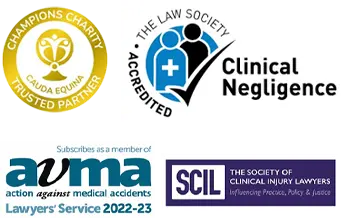
Subarachnoid Haemorrhages - The Importance of an Early Diagnosis
Every year in the UK, 8,000 people will suffer a subarachnoid haemorrhage. It is an uncommon but extremely serious condition that requires immediate medical treatment. If there is a delay, a patient's condition will quickly deteriorate, leading to brain damage or even death.
Diagnosing a Subarachnoid Haemorrhage
A subarachnoid haemorrhage is a medical emergency, as early treatment is the only way to prevent serious complications ensuing. It is therefore essential that medical professionals diagnose the condition as soon as possible.
When a patient presents to A&E or to their GP with symptoms of a subarachnoid haemorrhage, the treating doctor should quickly recognise that the patient is suffering a significant neurological event (such as a subarachnoid haemorrhage).
These symptoms include:-
- Sudden onset of a severe headache;
- Pain in the eye;
- Problems with vision;
- Nausea and vomiting;
- Stiff neck;
- Slurred speech.
These symptoms are widely regarded as being indicative of a subarachnoid haemorrhage, and so should prompt medical professional to take further tests.
Firstly, a patient should undergo a physical examination to test their vital signs and their reaction to light. An urgent CT scan should then be arranged, preferably to be carried out on the same day. If the scan is normal, a lumbar puncture should be performed. This involves inserting a needle into the lower end of the spine to collect a sample of cerebrospinal fluid. If there is blood in the sample, doctors can make a firm diagnosis of a subarachnoid haemorrhage.
What if there is a Delay in Diagnosis?
A patient who presents to A&E with sudden onset of severe headache should, therefore, expect the following to happen:-
- Discussion with a more senior doctor in the Emergency Department of the duty Medical Registrar;
- Undergo a CT as soon as possible;
- Be admitted under the care of the Medical team;
- If the CT scan is normal, undergo a lumbar puncture.
If all these steps are taken and the test results do not indicate a subarachnoid haemorrhage, then it is safe to make an alternative diagnosis, such as a migraine.
However, if such investigations are not undertaken and a patient does have a subarachnoid haemorrhage, the consequences will be catastrophic. This is because without early neurosurgical intervention, the chances of a patient making a full recovery are slight. A delay in diagnosis can cause long-term complications such as epilepsy and brain damage. In some cases, a delay in diagnosis will be fatal.
Does a Delay in Diagnosis Amount to Medical Negligence?
If there is a delay in diagnosing a subarachnoid haemorrhage, then the level of care provided could amount to medical negligence. This is particularly true if medical professionals:-
- Fail to recognise the symptoms of a subarachnoid haemorrhage;
- Fail to arrange further tests (including CT scan and lumbar puncture);
- Fail to recognise the urgency of further tests;
- Fail to accurately interpret test results.
If any of the above has happened to you or a loved one, you need to speak to a medical negligence solicitor, as you could be entitled to make a claim.
Can We Help You With A Medical Negligence Enquiry?
Early legal assistance can be vital so please contact us if you would like to discuss your situation. Please call us free on 0800 234 3300 (or from a mobile 01275 334030) or complete our Online Enquiry Form.
Can We Help You With A Medical Negligence Enquiry?
Early legal assistance can be vital so please contact us if you would like to discuss your situation. Please call us free on 0800 234 3300 (or from a mobile 01275 334030) or complete our Online Enquiry Form.



